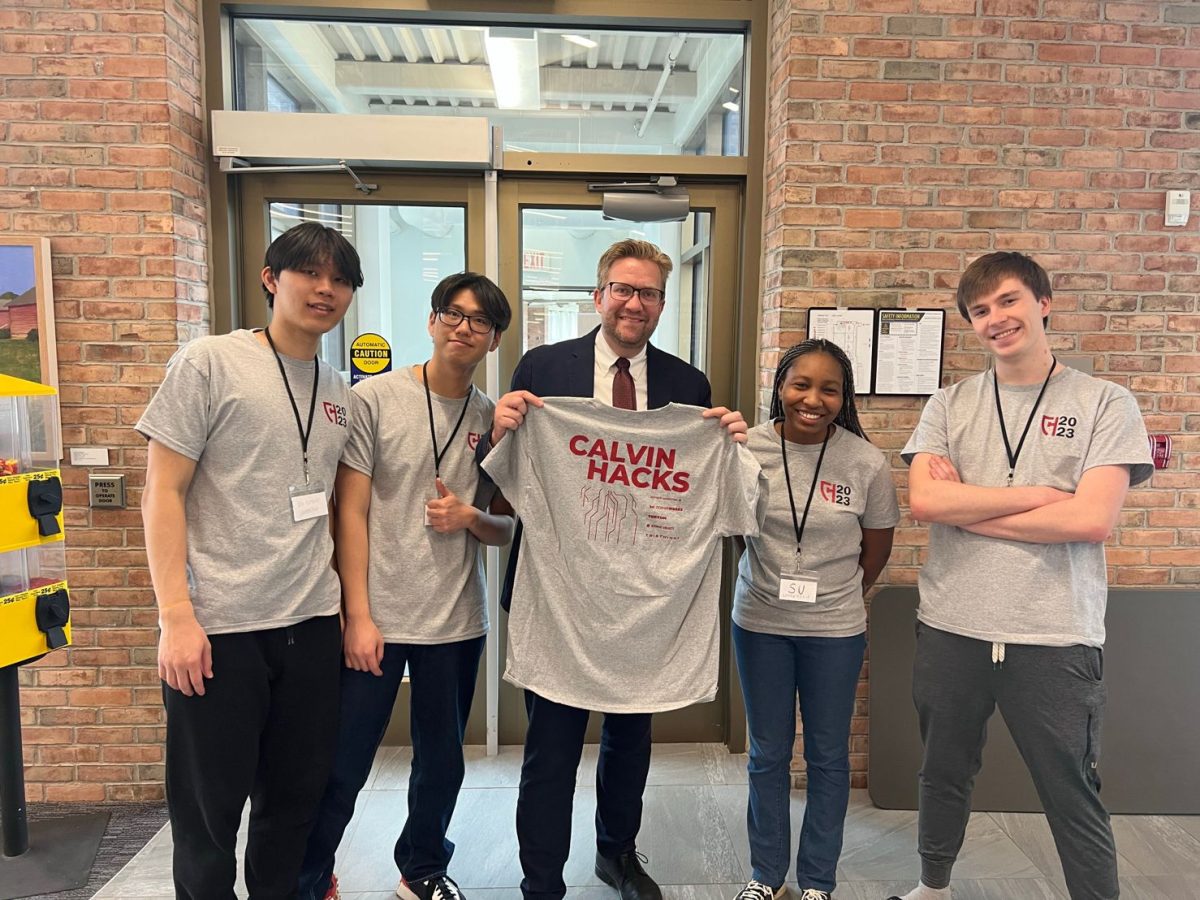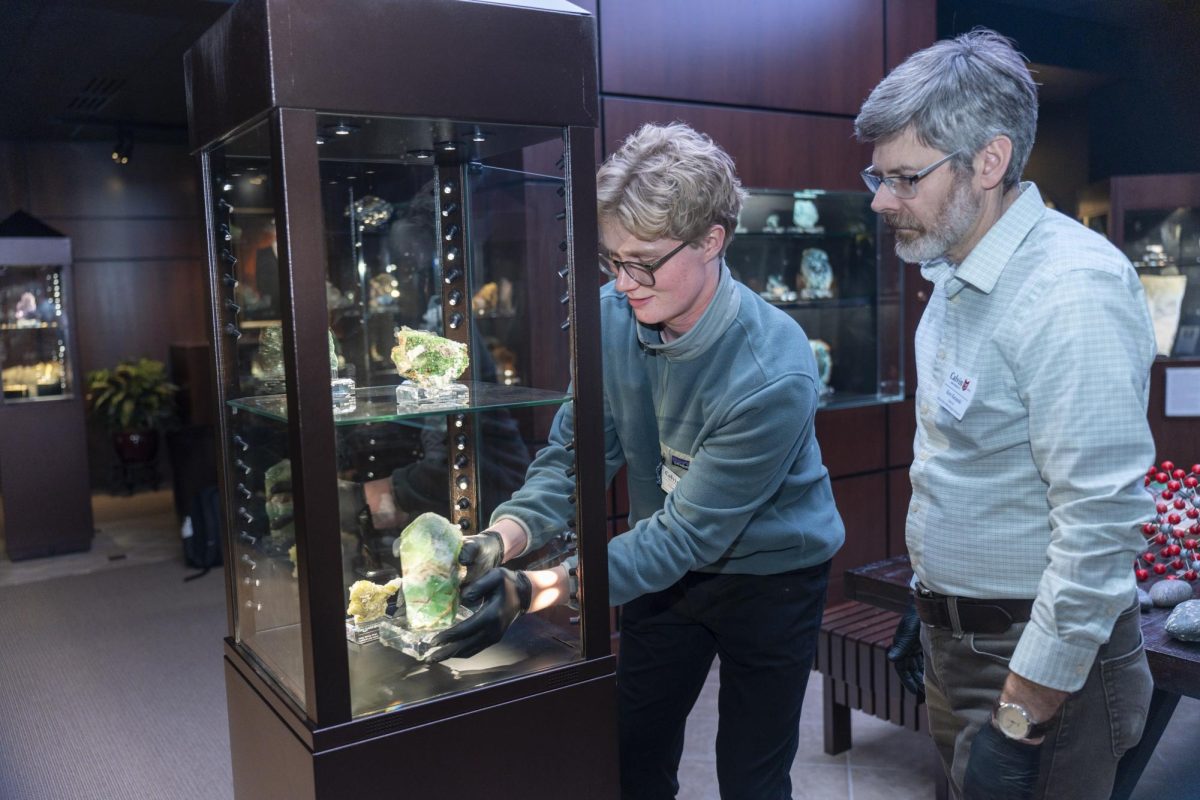Peter Diamandis talked at the January Series about how he is optimistic that technology, because of the way that it develops at an exponential rate, is going to create a world of abundance sooner than we think. “Technology is a resource-liberating force,” he explained in a TED talk on the same theme. It is an empowering force, giving people for the first time the necessities of life, and connecting them to the Internet where their voices can be heard for the first time.
The first question he was asked by the audience, however, was what place humans will have in the future world when artificial intelligences will be able to do many things better than we can. This question is about how technology might be a disempowering force by trivializing the activities we pour ourselves into right now. Diamandis made me think that technology is empowering and opens up a new world, but made me feel afraid it might show me up as powerless. The curious part of this question is that almost everyone I’ve been talking to that had engaged with Diamandis’ ideas came up with the same one.
One cause of this might be the way we often define what it means to be a human being in opposition to other things: what makes us human is what makes us different than any animal or machine. But with biologists discovering new behaviors in animals and computer scientists pushing the envelope of what computers can do, this definition is being squeezed on two sides. Especially over against computers, humans have the advantage of a more complex brain. But computers (Diamandis got this right) have been getting more complex at an exponential rate, so we can reasonably expect them to catch up in terms of complexity at some point and acquire interesting behaviors that they do not have right now. It is threatening for us to think that something might be as intelligent as we are, because we associate doing human-like things to doing meaningful things. A threat to humanity being unique and special becomes a threat to feeling that our lives’ work is meaningful. What good am I if a computer is just as good at being me as I am?
Diamandis’ response to the question was that the role of humans would be to “explore, think, wonder, ask questions, ponder, be philosophers.” The future world is one where, because of abundance, we will be free to pursue what is most meaningful to us, making it “a world of liberation, and a world of possibility.” This answer assumes a definition of humanity and meaning in opposition to computers, since for humans, these are meaning-producing activities, and the subtext is that computers, even ones more intelligent than we are, would never be able to understand why these things are important and would stay out of our way.
I think this answer fails to address the concerns of the people asking the question in the same way because defining humanity in opposition to computers and animals is a problematic way to pose the problem. I am not going to try to define what a human being is, or what is meaningful for humans to do in the world, but there certainly are activities we find worthwhile that show up the problems in these lines of thought. As an example, it would be silly for me to ask someone who takes a morning jog why they didn’t just drive instead. There is a more convenient technology for getting from place to place, but to say that cars make jogging obsolete is to miss something about why jogging is a worthwhile activity for people.
In fact, we feel very fulfilled when we do certain meaningless things. I worked at Knollcrest dining hall my first year at Calvin, and I can’t say that working there was the epitome of my contribution to the world. Nonetheless, I definitely enjoyed spraying down rubber mats and squeegeeing floors and fishing kale out of the salad drains. People enjoy working with farm animals, lifting heavy concrete blocks, digging holes, and the like: tasks that require a lot of energy but usually don’t count as making a difference in the world. Providing for others’ needs, even as a cog in the economic machine, brings along a certain satisfaction. What we feel fulfilled doing is not necessarily what we think we should feel fulfilled doing.
As well, a world of abundance where we were free from doing this meaningless work would not be an existentially fun place to live. We would have to be constantly asking ourselves whether what we were doing was really meaningful or not. These kinds of justifications are either very difficult to make (how is watching a movie making the world better?) or would demonstrate how small of a difference we really can make. The 1990s gave us works like “Life After God”, “OK Computer” and “The Matrix” that represent a cultural coming-to-terms with this emerging angst. Technology is already making it harder to hide from hard questions about meaning, and perhaps that is not a bad thing.
In the end, however, I do not think that technology has very much to do with how I ought to live my life. I ought to be, among other things, virtuous and patient and charitable, and if my computer can do those things too, it doesn’t diminish my obligation to be that way any more than the fact that other humans have the same obligations does. Technology might help me become who I ought to be (or get in the way), but it doesn’t have much to speak to my motivations and goals.
Therefore, I reject putting what it means to be human and do worthwhile things in opposition to what technology can do. Advanced technology will not narrow down what humans should be doing to the things that technology cannot do. It is more complicated than that. The reason that technology is so exciting to work on, as I can attest to after many late nights coding, is that it makes possible things that were not possible before. It starts to reveal patterns and perform behaviors. It opens possibilities that weren’t there. Diamandis is right in seeing a brighter future brought about by technology. Stewarded rightly, this technology does not need to close off human activities we have always found valuable.







